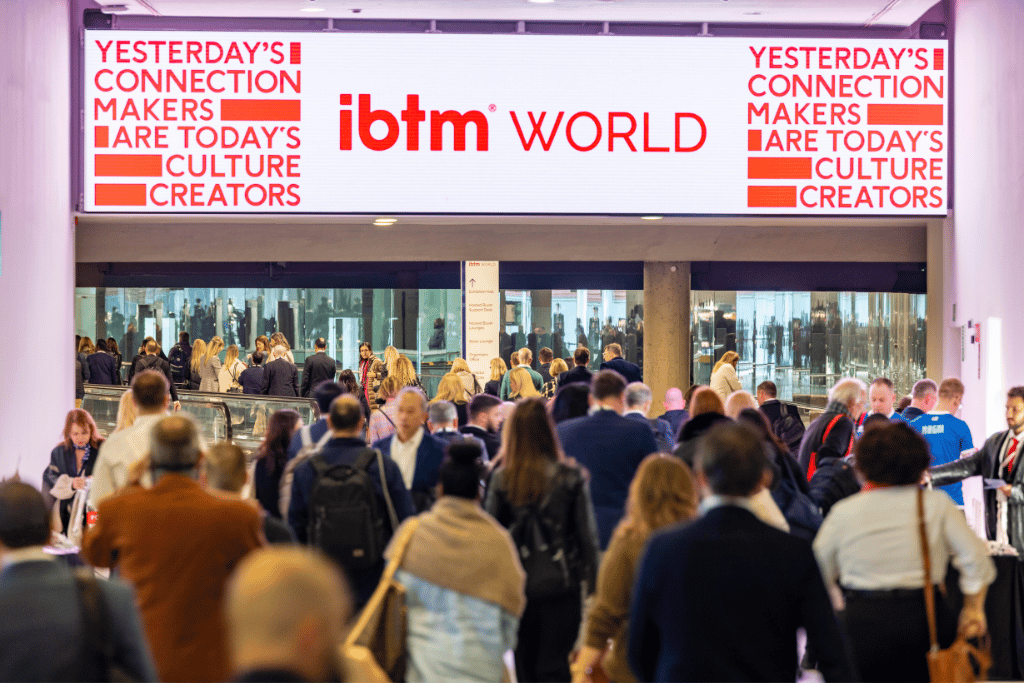Do not rely on your gut feeling
Trust in MICE events is connected to emotions, feelings and influencers, who help us identify with a brand or event. Emotions often prevail over arguments and maths.
The pandemic shuffled the cards on the international MICE B2B events scene. Some events were organised without interruption, others resorted to online or hybrid forms, while others waited for the storm to pass or experimented in the digital realm. Several business events disappeared from the market, replaced by new kids on the block. It seems unbelievable that as late as April 2022, events still could not take place in some countries.

After the pandemic, we were outright delighted to meet in person again throughout the rest of 2022. Almost every event exuded the joy of rendezvousing with colleagues in person again. In 2023, the industry seems to have returned to normalcy. There is again a hierarchy of events and a map showing key stakeholders where, how, why and how to operate again. We can conspicuously point to must-attend events or single out the new disruptors of our industry. In other words, the world of B2B events has returned to its normal state of affairs in 2023, divided into the following event categories:
A. Global exhibitions and expos
International exhibitions connect the entire global meetings industry, with representatives joining from all seven continents. In surveys, attendees most often label such events as must-attend. Expos and exhibitions generally span several days and are attended by over 10,000 participants. Such events have diverse accompanying, predominantly educational events.
Key events in 2023: IMEX and IBTM World
B. Continental and regional trade shows
Trade shows connect individual regions or continents on a smaller scale than global exhibitions. They represent the vast majority of events on the market and have become an integral part of an event organiser’s season. Such events stand out thanks to their meaningful and diverse program that enriches the elementary matchmaking concept. Fam trips and meetings among decision-makers and service providers are integral for such events.
Key events in 2023: Conventa, The Meetings Show, AIME, ITCM China
C. National trade shows
Nation-wide trade shows follow the concept of regional trade shows and aim to promote local or national markets exclusively. Above all, they focus on fostering matchmaking opportunities among buyers and service providers and organising destination visits. National tourist organisations and convention bureaus most often organise national trade shows.
Key events in 2023: MEETEX, Travel Trade Athens, MICE Business Day
D. Table-top workshops
Such events circulate at various global destinations. They are based solely on matchmaking and discovering destinations through fam trips. There is immense competition among table-top workshops that keep springing up like mushrooms.
Key events in 2023: M&I Forums, MCE Forums, Break The Ice Forum, The Meeting Space, etc.

ONE SIZE DOES NOT FIT ALL
Which events you should attend depends primarily on the results you expect to achieve at them. As a rule of thumb, consider the following three crucial aspects:
1. Short-term sales is still a predominant criterion for evaluating the ROI and considering whether attending a B2B event is sensible.
2. Brand development and gaining loyal clients is the second criterion worth considering. Still, the effects are only seen in the long term, as only long-standing and continued attendance brings tangible results.
3. Networking and influencing key stakeholders is another long-term activity that can boost the prominence of your brand.
Measuring the impact of such effects is not as simple as you might think. It is often an enigma to discern whether attending an event, trade show or exhibition boosted short-term sales or if it was brand development or perhaps networking.
For the exhibitors, everything starts with setting achievable goals and realistic expectations. Any event can be considered a success when an exhibitor has no goals or KPIs. Setting objectives comes first. Only then can exhibitors measure what they achieved. As soon as the event concludes, the fundamental question is whether an attendee has a functioning CRM system that will help them discern whether they forged valuable connections long-term. Potential buyers, sales leads and customer service per contact remain essential criteria.
Despite scepticism, events remain one of the most effective tools of direct marketing, as event organisers can define and measure goals clearly. To illustrate, an exhibitor can count the number of conducted meetings or new business opportunities. A quintessential part of ensuring great ROI is convincing attendees they are attending an overwhelmingly quality event. That includes tiny details, such as an inviting and pleasant exhibitor stand for establishing genuine personal relations with potential clients. Furthermore, event organisers must implement additional initiatives before, during and after the event.















